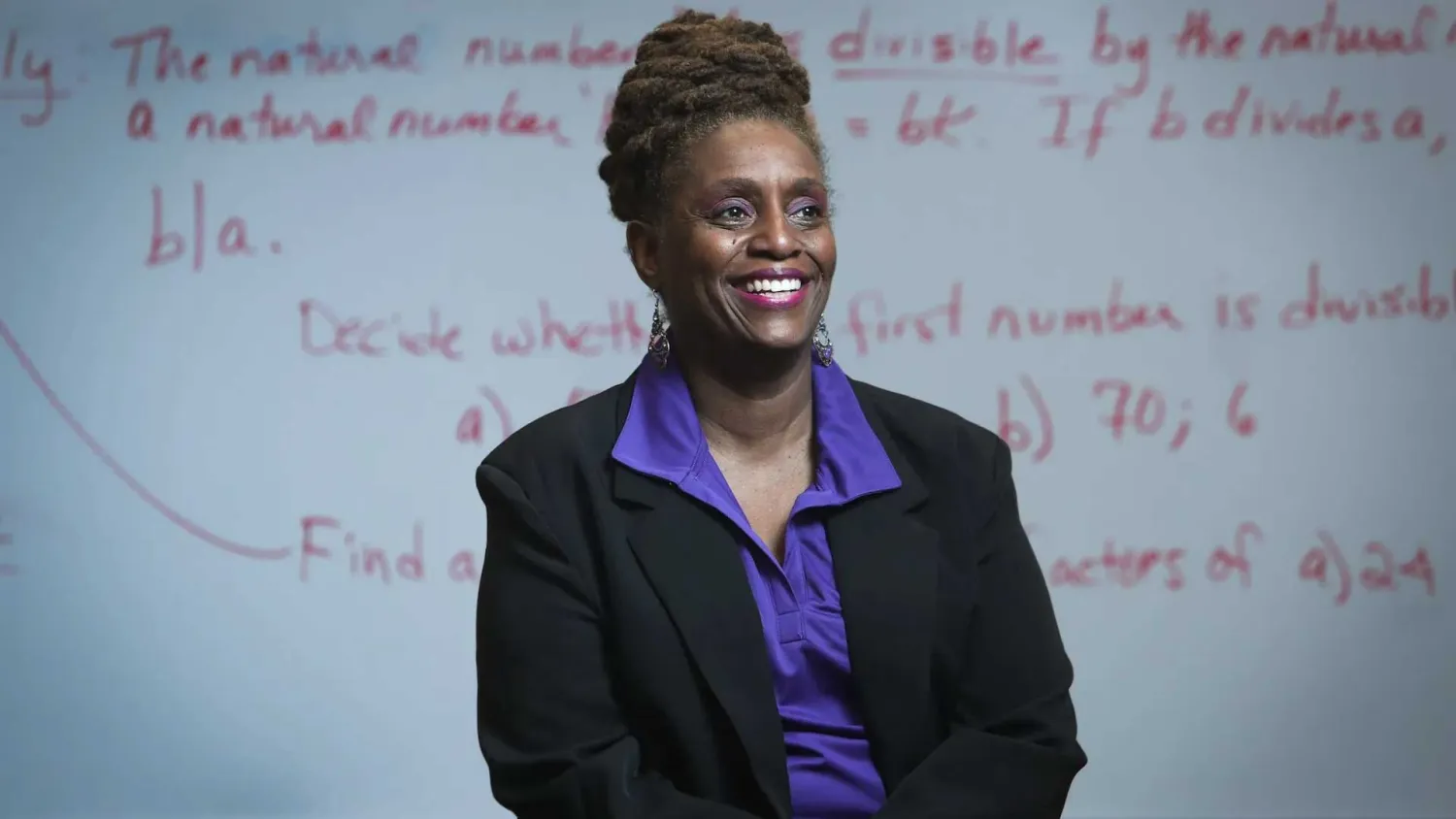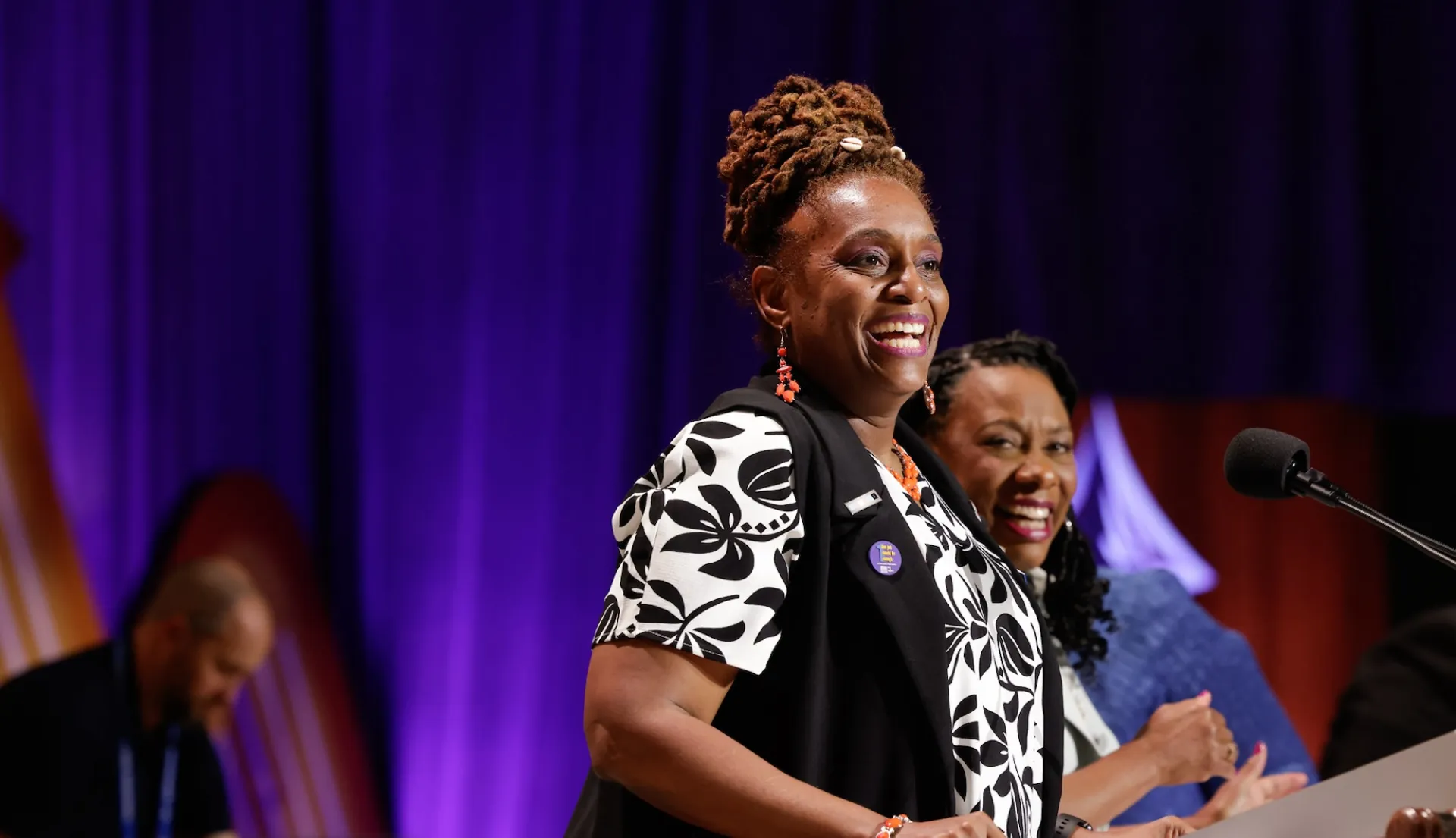There’ve been times that I thought I couldn’t last for long, but now I think I’m able to carry on. It’s been a long—a long time coming—but I know a change gon’ come, oh yes it is.
Teresa M. Hodge, Ph.D., NEA’s Higher Educator of the Year, sang the Sam Cooke classic, “A Change is Gonna Come,” the #1 Best Protest Song of All-Time, according to Rolling Stone, to nearly 7,000 NEA Representative Assembly delegates and guests on Friday. Sixty years old this year, Cooke’s call for change—for listeners to get off their knees and “carry on”—still resonates with educators.
In Florida, where Hodge has taught math at Broward College since 2002, faculty and staff are confronting a vast censorship on what students can learn. Diversity and inclusion programs have been shuttered. Union rights limited. Florida’s governor recently announced his own “DOGE” to target the state’s colleges.
Hodge, who recently served as president of the statewide United Faculty of Florida, acknowledged these epic challenges in her speech to delegates, while pledging to “boldly and unapologetically shine the light of truth where there are lies and use my voice to bring awareness to and for higher ed issues across this nation.”
“May we all learn to build the same kind of resilience our ancestors did as we face of our current adversities; may we endeavor to build our power through allyship with our community partners, and may we continue to fight for the respect we deserve as professionals in our respective fields regardless of our classifications,” Hodge exhorted delegates.
“We must remain true to who we are and never ever diminish our light and its brightness because how else can we light a path for those who will come behind us?” she asked.

“I am Teresa Hodge”
“Who am I? My brothers, sisters and kin, I am Teresa Hodge, your 2025 Higher Educator of the Year,” Hodge told delegates. An Afro-Caribbean woman, born and raised on St. Thomas, in the Virgin Islands, and educated at Hampton University, a historically Black university in Virginia, where Hodge was a section leader in the university’s famed marching band, Hodge has a master’s degree in applied mathematics with a specialization in unsteady aerodynamics.
Her original career plan? To follow in the steps of Black women scientists such as Dorothy Vaughan, Katherine Goble Johnson, and Mary Jackson, the “Hidden Figures” who worked at NASA headquarters in Hampton, Virginia, Hodge told the delegates. But then Hodge felt called to teach instead.
“[I stand] on the shoulders and graves of so, so many who came before me and many others of my generation; the ancestors who took action for me, advocated for me at a time when basic rights were not granted to people who looked like me, who ‘speak wid ah accent,’ like me, or wear their hair like me,” Hodge told delegates.
Chief among those ancestors who inspired Hodge? Her mother, a former nurse and public health administrator, and her father, a retired judge. For years, her father told Hodge: ‘Nothing is so complicated that it cannot be simplified by hard work.’
“And I thank God each day that I get to do this hard work!” she told delegates.


